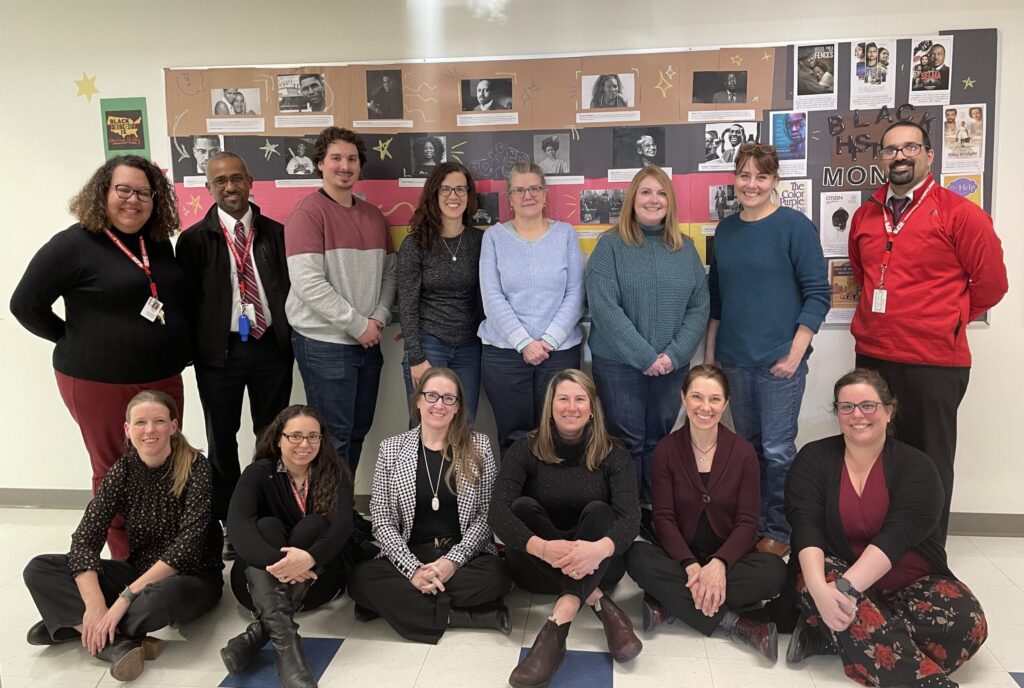
Hudson High School T4BL Study Group Members
In Hudson, Massachusetts, 20 educators from Hudson High School formed a Teaching for Black Lives study group to “learn and improve together.” They meet bi-weekly to discuss the shared text “as a tool to reflect on our own classroom practice: the ways we build community and welcome students in our rooms, specific curriculum/text revisions, and addressing larger school policies.”
In 2022, the group shared that they,
spent a good deal of time looking at student data — attendance rates, drop out rates, failure rates, student identity, and class levels — to identify areas of inequity. We are now reflecting on programs, policies, and practices that need to be changed to create an environment that supports the learning and success of all students.
During their meeting in January 2023, they brainstormed and reimagined what equity in their school and classrooms might look like in terms of scheduling, technology, budget, curriculum, communication, school culture, family partnerships, hiring practices, and facilities.
A few of their thoughts:
Assessments could be portfolios and presentations to get rid of standardized testing.
We’re looking at an idea where student learning is self-directed and there are equal stakeholders at the table, with both teachers and students.
More flexibility in a school day to meet students’ needs. This involves being less bell driven since rigid schedules do not create an environment that feels comfortable and exciting.
This conversation is heartening evidence that Teaching for Black Lives study groups deepen knowledge, improve practice, and provide a community of accountability and mutual support.

